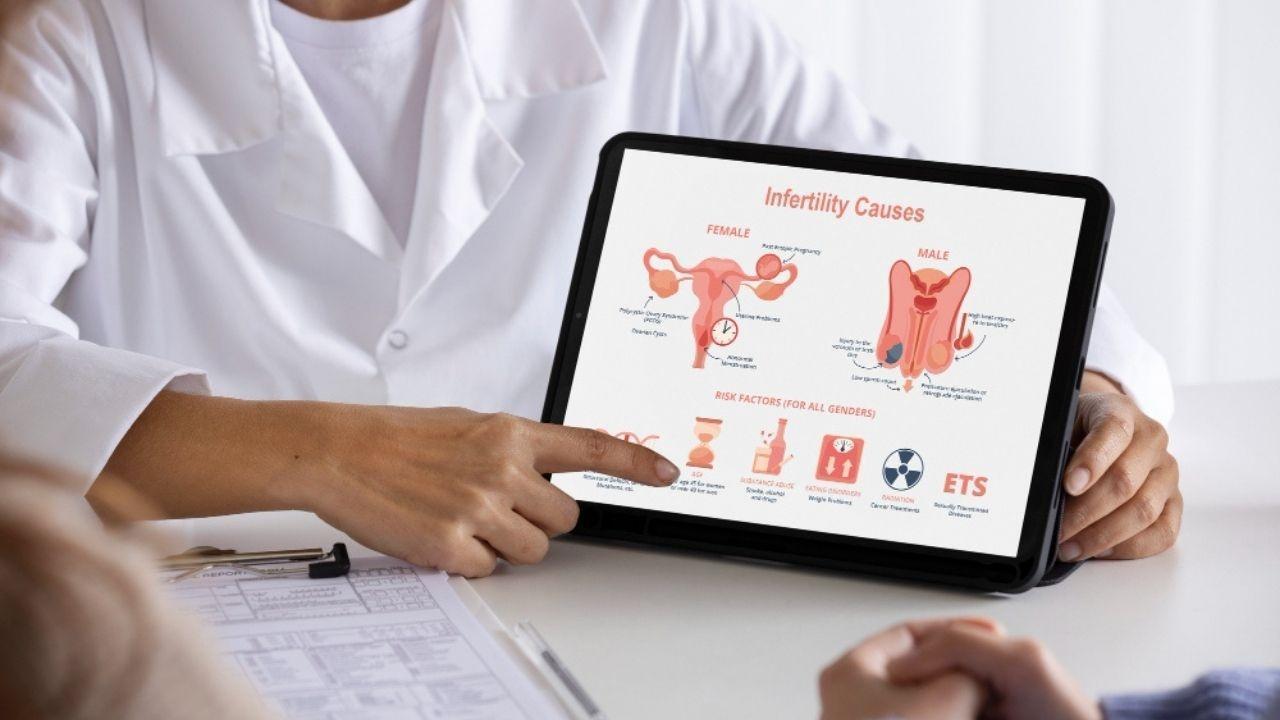
Post by : Mikhael Al-Saeed
Polycystic Ovary Syndrome (PCOS) is a prevalent condition impacting numerous women globally, especially during their reproductive years. Nonetheless, many misunderstand PCOS, leading to a lack of diagnosis. Symptoms can vary from irregular menstruation and loss of hair to weight gain and fertility challenges. Recognizing these symptoms is crucial for effective management. This guide provides insights into PCOS, detailing its symptoms and emphasizing the importance of early diagnosis.
PCOS is a hormonal disorder affecting approximately 10% of women of childbearing age, marked by hormonal imbalances and leading to various symptoms. The ovaries may produce elevated levels of male hormones, known as androgens, resulting in irregular periods, excessive hair growth, acne, and difficulties conceiving. Not every woman with PCOS has cysts, and conversely, not every woman with cysts has PCOS.
Links have been found between PCOS and insulin resistance, which can complicate symptoms and contribute to weight gain.
Symptoms of PCOS differ among individuals and typically develop gradually. Some may only experience a couple of symptoms, whereas others may have several. Below are common symptoms linked to PCOS:
Irregular Periods
Women with PCOS frequently face irregular menstrual cycles, which may encompass fewer periods, heavier flows, or skipped cycles altogether due to inconsistent ovulation.
Excess Hair Growth (Hirsutism)
Increased androgen levels can lead to pronounced hair growth on the face, chest, or back, a condition termed hirsutism.
Acne and Oily Skin
Higher androgen levels can stimulate oil production, leading to acne, particularly on the face, back, and chest, which may be troubling for women beyond their teenage years.
Weight Gain and Difficulty Shedding Pounds
Many women with PCOS encounter weight gain, particularly around the waist, and struggle to lose weight despite healthy diet and exercise.
Thinning Hair or Hair Loss
Women may notice thinning or loss of hair on the scalp due to elevated androgen levels disrupting hair growth cycles.
Infertility
PCOS is a leading cause of infertility as hormonal imbalances and irregular ovulation complicate conception; however, many women can conceive with proper treatment.
Other Symptoms
Additional symptoms may include mood swings, fatigue, or sleep disturbances, which can be interconnected with hormonal imbalances.
Many women remain undiagnosed due to gradual onset of symptoms that may be mistaken for other conditions. Early identification is vital to mitigate complications like type 2 diabetes and heart disease. If you observe any symptoms above, consulting a healthcare professional for a thorough evaluation is advised.
Diagnosing PCOS involves several steps:
Medical History
The physician will discuss menstrual cycles, weight fluctuations, acne, and excess hair growth, along with any family history of PCOS or hormonal disorders.
Physical Exam
A physical examination may identify visible PCOS signs, such as excess hair growth or acne.
Blood Tests
Blood tests will assess hormone levels, particularly androgens and insulin, confirming possible hormonal imbalances.
Ultrasound
A pelvic ultrasound may be used to scan for ovarian cysts; however, the presence of cysts alone is not conclusive for diagnosis.
While there is no definitive cure, timely diagnosis and treatment can alleviate symptoms and minimize risks. Here are notable management strategies:
Lifestyle Modifications
Implementing a nutritious diet and consistent physical activity is crucial. Focusing on whole foods and regular exercise can enhance insulin sensitivity and support weight control.
Medication Options
Healthcare providers may recommend medications to regulate menstrual cycles, manage insulin levels, or enhance fertility, including birth control pills and metformin.
Treatments for Hair and Skin
Women dealing with hirsutism or acne may find relief with anti-androgen medications or topical treatments.
Seeking Emotional Support
Mental health is equally vital; counseling or support groups can aid in navigating the emotional challenges associated with PCOS.
PCOS can significantly impact various aspects of a woman’s health, making understanding symptoms and early diagnosis essential. With adjustments in lifestyle, medical intervention, and emotional backing, women with PCOS can lead enriched lives. If you suspect you may have PCOS, it’s imperative to speak with a healthcare expert for customized care.
This article serves informational purposes and is not a substitute for professional medical advice. Consult a healthcare expert for personalized care, especially concerning underlying health concerns. Individual experiences with PCOS can differ, and approaches to treatment may vary. Always seek professional guidance before implementing any significant changes to your health regimen.










PTPA Moves Towards Settlement with Tennis Australia Regarding Player Welfare
PTPA is nearing a settlement with Tennis Australia over player welfare issues ahead of the 2026 Aust

Harbhajan Singh's Gesture of Sportsmanship in T10 League
Harbhajan Singh's handshake with Pakistan's Dahani in Abu Dhabi highlights sportsmanship, despite pa

Mushfiqur Rahim Makes History with Century in Milestone 100th Test
In a historic achievement, Mushfiqur Rahim scored a century in his 100th Test, marking an unforgetta

Shubman Gill Excluded from Second Test; Rishabh Pant to Captain India
Shubman Gill sidelined for the second Test against South Africa; Rishabh Pant steps in as captain, w

G42 Secures US Green Light for Advanced AI Chip Exports
G42 in UAE gets US approval on AI chips, enhancing bilateral tech collaboration and advancing key AI

Italy Advances to 2025 Davis Cup Semi-Finals with Win Over Austria
Italy defeated Austria 2-0 to reach the Davis Cup semi-finals, with Berrettini and Cobolli's wins pa